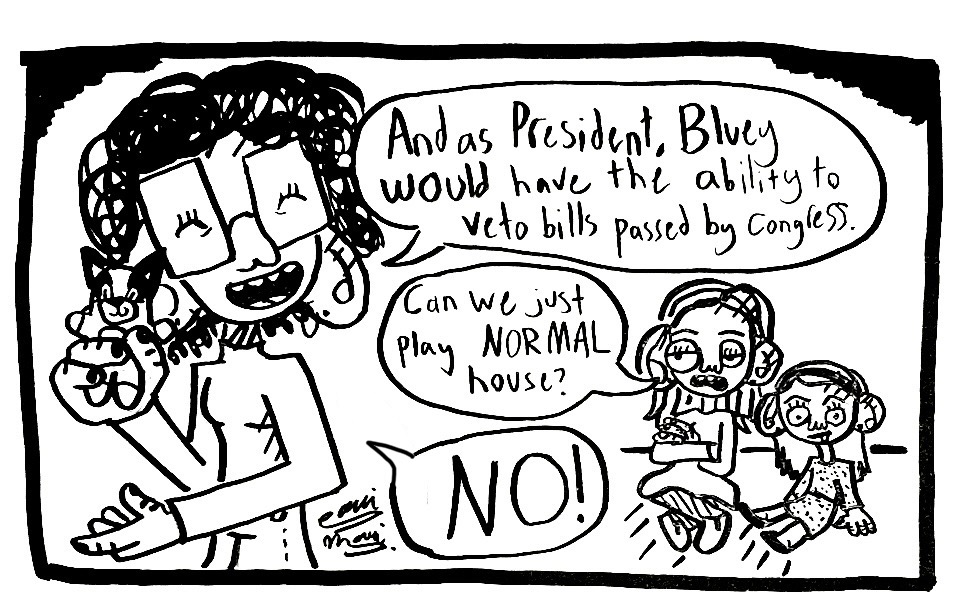Catastrophic structural failure, nonsensical personal feuds and almost comical West Wing-style role-playing corrupt the SA, whose roots trace back to 1909. But while these issues are the flashy eye-catching pieces of palace intrigue that make the headlines, they are nowhere near the worst problems facing the SA. And I should know – until Feb. 15, I was one of them.
The SA Senate has doled out about $1.3 million to fund more than 600 of GW’s student-run organizations this fiscal year. And on Feb. 21, the senate unanimously approved legislation rewriting its bylaws to make the process to apply for funds easier. But they’re missing the point. Student organizations don’t have a hard time receiving money because of SA processes – they have a hard time because of the SA’s existence.
As legislator general, I was third in line for the presidency and worked before all three branches of the Student Association. But before I took the position, I was director of inventory, the deputy head of the SA Treasury department. I sat in on every Finance Committee meeting and watched every fall semester co-sponsorship allocation, line item transfer and general allocation.
Through my experience, I’ve found that the SA fails on finance due to three key reasons. First, self-imposed overregulation of permitted allocation. Second, the senate’s willing surrender of power to said regulation. And third, GW administration’s understandable loss of faith in the SA’s ability to manage money.
The 220 pages of SA governing documents can give even the nerdiest, law-obsessed readers a splitting headache. And that would be okay if complexities and contradictions didn’t get in the way of necessary policy work. But we don’t need to look very far for examples of this regulatory obstruction – take last semester’s legislative calendar. Debate over the senate’s internal processes accounted for 10 out of the 33 pieces of legislation the SA enacted. Of those 33, 14 filled executive branch vacancies. Just nine of the 33 acts had a substantive policy focus.
Chapter 500 of the SA’s bylaws governs its financial activities, which among other things, regulates how it can go about monetary allocation. With restrictions on requests, allocation spending limits and special exceptions for cultural organizations, chapter 500 gives the illusion of case-by-case consideration for student organization funding. But in reality, it is just the opposite. The majority of Finance Committee decisions on allocations are based on what the bylaws do and do not permit, not which student leaders need the money the most.
A prime example of how the SA’s bylaws restrict its ability to deliberate and decide on the allocations process is the SA’s most recent general allocation for the spring semester, where student organizations received between two and 10 percent of what they had requested. The Director of the Legislative Budget Office admitted to the senate that funding was so low because students requested about $2.2 million for the spring semester while the SA only had about $343,000 to allocate. Senators’ consideration for the $343,000 worth of funding for student organizations only lasted 30 minutes. Our senators, elected to represent us and act as our fiduciary agents, spent a half hour deliberating how to spend hundreds of thousands of dollars worth of our money.
They spent such little time deliberating because that’s all they could do. Their hands were tied and they even admitted it – the regulations made the decisions for them. The SA’s democratic institutions like the senate no longer have power over allocations. Senators are in the control of the SA’s governing documents – a well-oiled perpetual motion machine that doesn’t need to provide one iota of due consideration to any student organization.
This February’s rewrite of chapter 500 does not fix any issue that plagues students. It merely changes how funds are organized, restricts how SA branches can spend their personal budgets and changes a few regulations of allocations. The changes only worsen the complexity of the governing documents. Make no mistake – this is a feel-good initiative so SA members can convince themselves that they’re making a change to a broken financial system that, through overzealous regulation and a desire to feel like “real” lawmakers, they themselves broke. This revision makes zero meaningful difference to that system and the idea that it does is a dangerous lie.
The most commonly used deflection for why SA finance is in such disrepair is to say the University doesn’t give them enough money. And it’s true that student organizations requested a total of $2.2 million last semester when the SA only had 16.75 percent of that to allocate. So if providing more funds to the SA would fix its problems, then why withhold them?
The answer is pretty straightforward. Like students, University leadership sees the failures of the SA’s structure and has lost faith in its ability to serve as an agent of our finances. Last summer, the University was prepared to materialize its lack of faith and withhold about $200,000 worth of funds that it usually contributes to the SA budget. But after backroom negotiation and concessions from both sides, the University consented to put the money into the University-Wide Programs Fund, an entity managed outside of the SA which provides funding to student organizations for large events.
The SA’s charter tells us that the proper allocation of funding to student organizations is the ultimate responsibility of the SA. But if the administrators of this institution no longer trust them, then why should we? The SA has lost the right to act as our fiduciary agents. The SA must not be permitted to manage our money any longer. The time has come for the University to force the SA to relinquish its financial responsibilities and vest them in a more responsible body.
Adam Galland, a freshman majoring in economics, is an opinions writer.


